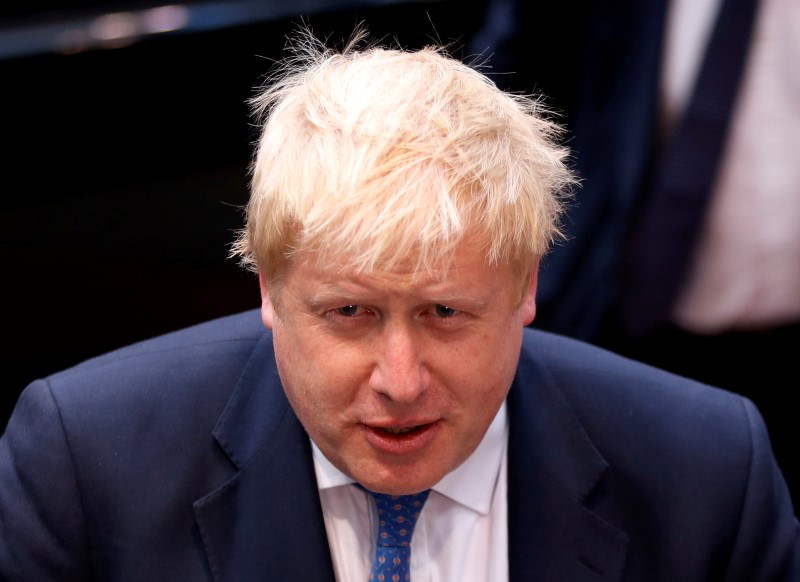(Bloomberg) -- Boris Johnson found himself arguing that Britain’s future was in making electric cars, just as Tesla (NASDAQ:TSLA) announced they’d chosen Germany to build a factory over the U.K. He’s having that sort of campaign.
The prime minister had started the day visiting flood victims in Northern England. They weren’t as pleased to see him as he might have hoped. “What more can we do?” he asked one woman. “It’s a little bit too late now,” she replied.
Burned by their disastrous 2017 election under Theresa May, the Conservatives chose Johnson as their leader partly because they felt he was a winner, a superstar politician who enjoyed the campaign trail. But on Wednesday, he didn’t look like he was having much fun.
It would be dangerous to read too much into this: It’s still a month until polling day, and every poll has the Conservatives comfortably ahead. Johnson is also ahead of opposition Labour Party leader Jeremy Corbyn on questions about who would make the best prime minister.
As Britain Votes, Your Enemy’s Enemy Is Your Friend: QuickTake
But anyone looking for things to worry about in Johnson’s performance could find them. There was the way that he was standing in an electric car factory, making a speech about how Britain was going to lead a technology revolution, on a day when Elon Musk had explained that the uncertainty around Brexit made it “too risky” for Tesla (NASDAQ:TSLA) Inc. to build a factory in the U.K.
Then there was the speech itself. One of the prime minister’s officials said privately they’d accepted that getting other people to write his speeches is a waste of time – he simply rewrites them afterward.
But that is a time-consuming process for a man with a country to run and a campaign to fight.
The result can seem confused. For his speech, at an electric taxi factory near Coventry, central England, Johnson had a series of announcements to make about his plans for a revolution in British science. They included:
- An Advanced Research Projects Agency, modeled on the U.S. Department of Defense’s science wing
- An increase in the target for wind-generated electricity
- Investment in carbon capture and storage infrastructure
- Investment in electric vehicle charging points, so no one in England and Wales is more than 30 miles from a charge point
None of this may matter. Johnson has long played politics by a different set of rules from the rest of the world, and it’s taken him to the top. His team is counting on that run continuing. They’re also sure that, faced with a choice between Johnson and Corbyn, enough voters will choose the Tory leader.
That’s why they’ve agreed to head-to-head televised debates, the first of which takes place Nov. 19.
Election debates are a relative novelty in the U.K., introduced in 2010, and repeated in different forms at subsequent elections. The problem arranging them is usually getting the parties to agree to the format. Debates are a zero-sum game, and if one of the two main parties -- Labour and the Conservatives -- thinks it can benefit, the other side usually refuses.
The ease with which this year’s debates were agreed stems from the fact that both the Tories and Labour think their candidate will look better for standing next to the other man. It’s likely that one of them is mistaken.
